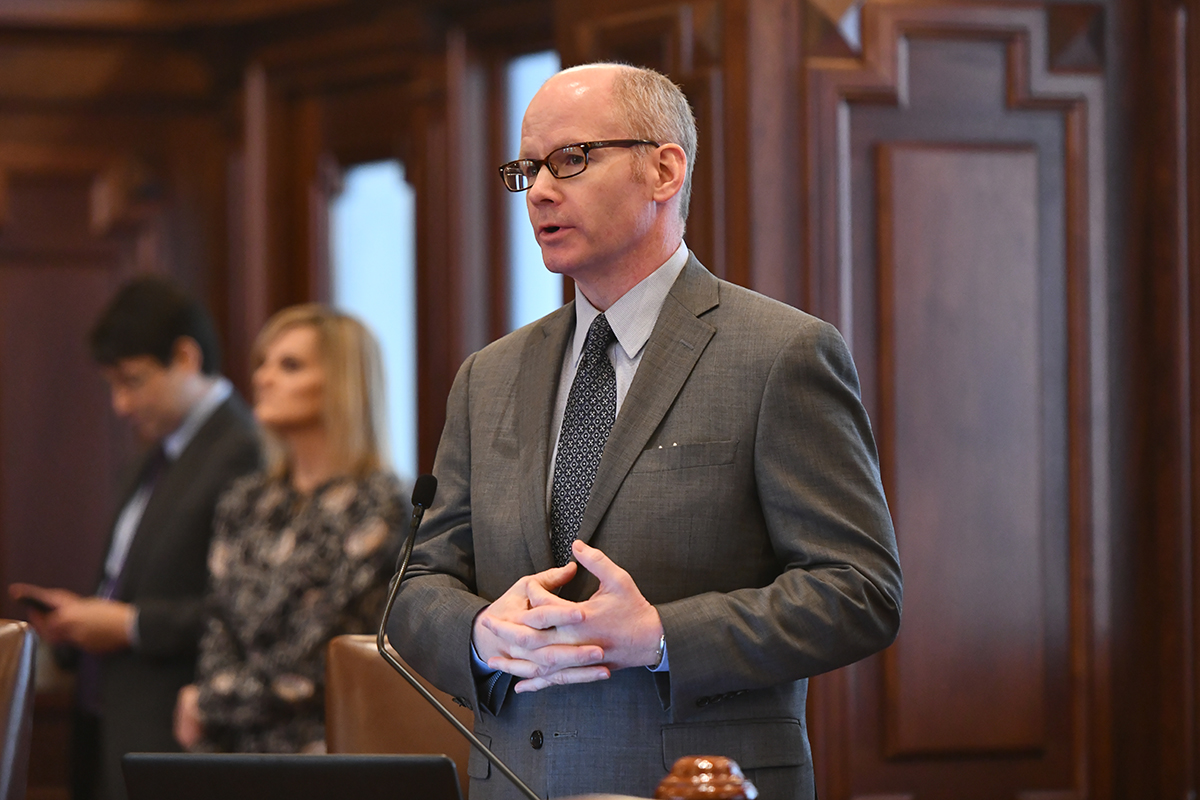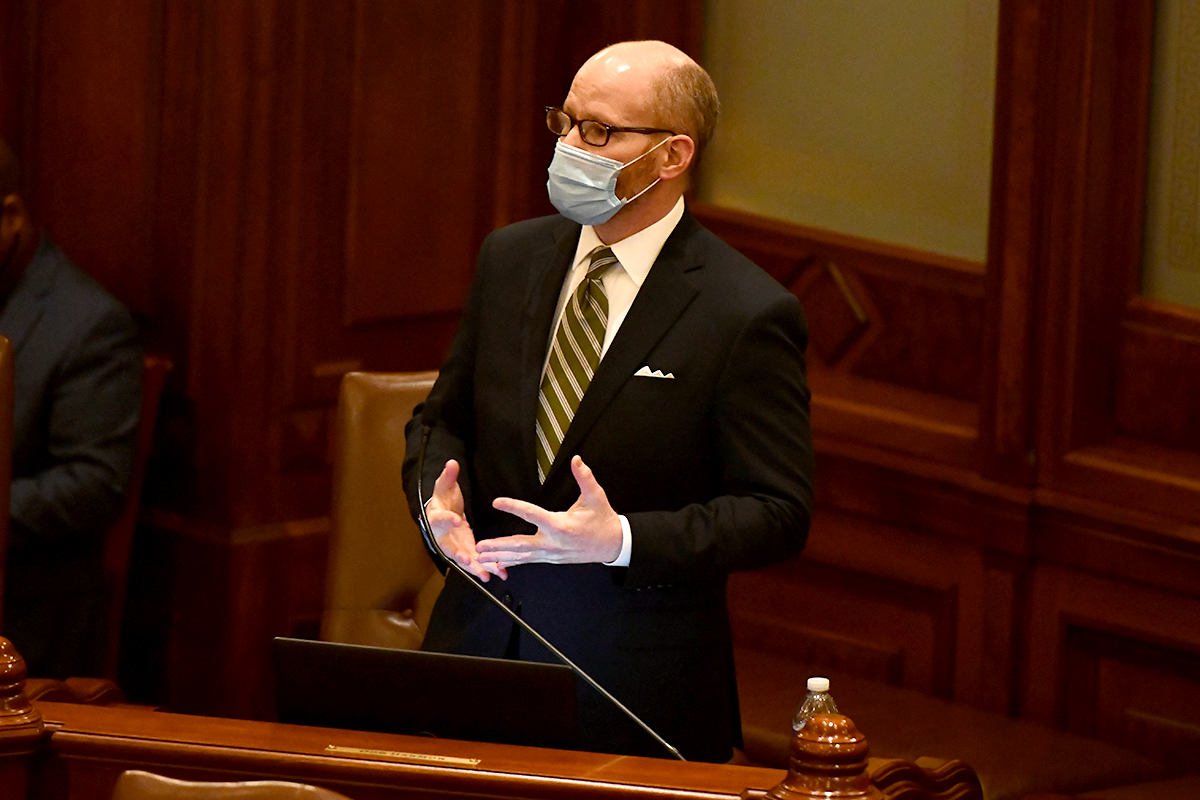- Details
- Category: News

SPRINGFIELD – Illinois Senate President Don Harmon will look into legislative options requiring power plants be put up for sale to see if someone else can successful run them before they can be mothballed.
Harmon offered the following statement regarding Exelon’s announcement that it intends to close two of the nuclear power plants it owns in Illinois.
“Independent market monitors believe these plants can be profitable. I intend to look into legislative options including requiring these plants be put up for sale before they can be shuttered. We owe it to these workers and communities to see if someone else can successfully run these assets.”
- Details
- Category: News

OAK PARK – Senate President Don Harmon (D-Oak Park) announced a grant of $12,500 to fund a mentoring program at Elmwood Park Library.
“Libraries provide a wide array of services to our communities, including valuable programming for young adults,” Harmon said. “This grant will help students gain skills that will set them up for success.”
The funding comes from Secretary of State and State Librarian Jesse White’s 2021 Project Next Generation grants to 28 public libraries statewide. PNG is a mentoring program created by Secretary White and administered through Illinois public libraries. Project mentors work with middle and high school students as the participants develop skills to use various technologies, achieve success through project-based learning and gain life skills such as effective communication, goal-setting and conflict resolution.
“I am committed to improving the lives of at-risk youth in Illinois,” said White. “I established this innovative program when I first became Secretary of State to give students an opportunity to receive hands-on experience with the latest technological tools at their local library.”
Projects were awarded grants from the Illinois State Library using federal Library Services and Technology Act funds provided by the Institute of Museum and Library Services.
Grants are awarded to public libraries serving culturally diverse, low-income and underserved populations. For more information, visit http://www.cyberdriveillinois.com/departments/library/grants/png.html.
- Details
- Category: News
SPRINGFIELD – Senate President Don Harmon (D-Oak Park) announced $1.7 million for new energy efficient windows at Triton College in River Grove.
This investment is made possible by the historic, bipartisan Rebuild Illinois capital plan the Senate passed in 2019.
“Our ability to continue to invest in our communities through the Rebuild Illinois plan is a bright spot in the midst of the economic devastation caused by the coronavirus pandemic,” Harmon said. “It is critical that we invest in our educational institutions now so that they are able to serve Illinoisans for years to come as our state recovers.”
The Rebuild Illinois capital plan passed with bipartisan supermajorities and will invest $45 billion in roads, bridges, railways, universities, early childhood centers and state facilities over the next six years, creating and supporting an estimated 540,000 jobs over the life of the plan and revitalizing local economies across the state.
- Details
- Category: News
SPRINGFIELD, IL – Senate President Don Harmon (D-Oak Park) announced four appointees to the Restore Illinois Collaborative Commission, a group created to help guide Illinois through the reopening process following stay-at-home orders to slow the spread of coronavirus.
Senators Christopher Belt (D-Centreville), Dave Koehler (D-Peoria), Iris Y. Martinez (D-Chicago) and Laura Murphy (D-Des Plaines) will represent Senate Democrats on the commission.
“These senators bring a regional diversity and passion for serving their constituents to this commission,” Harmon said. “I know they will do an excellent job advocating for the people of Illinois so that we can safely move forward toward a new normal and a thriving economy.”
The General Assembly passed legislation to create the bipartisan, bicameral commission in May. It will advise Gov. JB Pritzker’s administration as the state moves to open while balancing public health measures.
Harmon also announced the following appointments:
- Legislative Budget Oversight Commission: Senator Omar Aquino (D-Chicago), Senator Cristina Castro (D-Elgin), Senator Bill Cunningham, Senator Laura Ellman (D-Naperville), Senator Andy Manar (D-Bunker Hill), Senator Elgie Sims (D-Chicago) and Senator Heather Steans (D-Chicago)
- Commission on Poverty Elimination and Economic Security: Senator Kimberly A. Lightford (D-Maywood)
- Details
- Category: News
SPRINGFIELD – Illinois Senate President Don Harmon issued the following statement on the death of former Illinois State Senator Arthur Berman.
“Over the course of his public service, Art Berman was a leading voice for education funding reform in Illinois, always fighting for more resources for students and protecting access to vital services. He was also a genuinely delightful person. My condolences go out to his family.”




